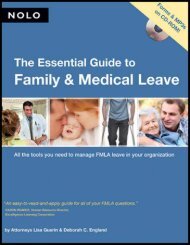Your Right To Privacy - Minimize Your Digital Footprint - Legal Series
Hacking, snooping and invading are commonplace on the Internet. Your personal information can be seen and shared and your privacy can be violated. Two veteran journalists, authorities on how information is handled in the digital age, have written a definitive guide to minimize your digital footprint, protect your vital information and prevent it from being misused. Jim Bronskill and David McKie argue there are steps each of us can take to keep our important data out of reach while still participating fully in new technologies. They identify the pitfalls we can make and the small moves that will help us avoid them. Their book makes an important contribution in enforcing our right to privacy at a time when governments, special interests and others are trying to watch everything we do. 'Your Right To Privacy' outlines in detail how to keep your information as safe as possible in an age of hacking, sharing and surveillance. This is the definitive guide on how to minimize your digital footprint and protect your privacy in the digital age.
Hacking, snooping and invading are commonplace on the Internet. Your personal information can be seen and shared and your privacy can be violated. Two veteran journalists, authorities on how information is handled in the digital age, have written a definitive guide to minimize your digital footprint, protect your vital information and prevent it from being misused.
Jim Bronskill and David McKie argue there are steps each of us can take to keep our important data out of reach while still participating fully in new technologies. They identify the pitfalls we can make and the small moves that will help us avoid them. Their book makes an important contribution in enforcing our right to privacy at a time when governments, special interests and others are trying to watch everything we do.
'Your Right To Privacy' outlines in detail how to keep your information as safe as possible in an age of hacking, sharing and surveillance. This is the definitive guide on how to minimize your digital footprint and protect your privacy in the digital age.
You also want an ePaper? Increase the reach of your titles
YUMPU automatically turns print PDFs into web optimized ePapers that Google loves.
lot harder to limit tracking on mobile devices.<br />
4. Social Media<br />
“Sometimes data we only intend to share with a few becomes<br />
surveillance data for the world.”<br />
— Bruce Schneier,<br />
Data and Goliath: The Hidden Battles to Collect <strong>Your</strong> Data and<br />
Control <strong>Your</strong> World<br />
Much of the information we share can be found on social networking sites<br />
such as Facebook, LinkedIn, and Twitter, which allow individuals to form<br />
online social communities.<br />
Users create profiles that include personal data such as their contact<br />
information, gender, political and religious beliefs, relationship status, and<br />
interests. These biographies can also include pictures, videos, and music.<br />
However, it goes even further than that. Users also describe the connections<br />
that they have with others, which are typically based on common interests,<br />
backgrounds, and hobbies. Venues such as public or private messaging, filesharing,<br />
and discussion boards keep the conversation going.<br />
While these social media sites provide wonderful opportunities to share<br />
content, keep in touch with friends and family, discover long-lost friends and<br />
acquaintances and make new connections, it is important to be cautious when<br />
clicking on links and sharing information. For instance, be aware that those<br />
slightly embarrassing party pictures you posted online could come back to<br />
haunt you when searching for a job. Indeed, this is the kind of “reputational”<br />
risk that concerns the Office of the <strong>Privacy</strong> Commissioner of Canada, which<br />
has announced a five-year commitment to study the “risks stemming from the<br />
vast amount of personal information posted online and on existing and<br />
potential mechanisms for managing these risks.”<br />
The privacy commissioner references the work of American social media<br />
scholar and Microsoft Principal Researcher Danah Boyd<br />
(http://www.danah.org/) who characterizes the information posted online as<br />
having four “distinct features.” 1) Online information is persistent in that<br />
deleting once it has been uploaded can be challenging, if not impossible; 2)<br />
Online information can be replicated; 3) It has the potential to be visible to a<br />
vast and unintended audience; 4) And it can be accessed through a search






